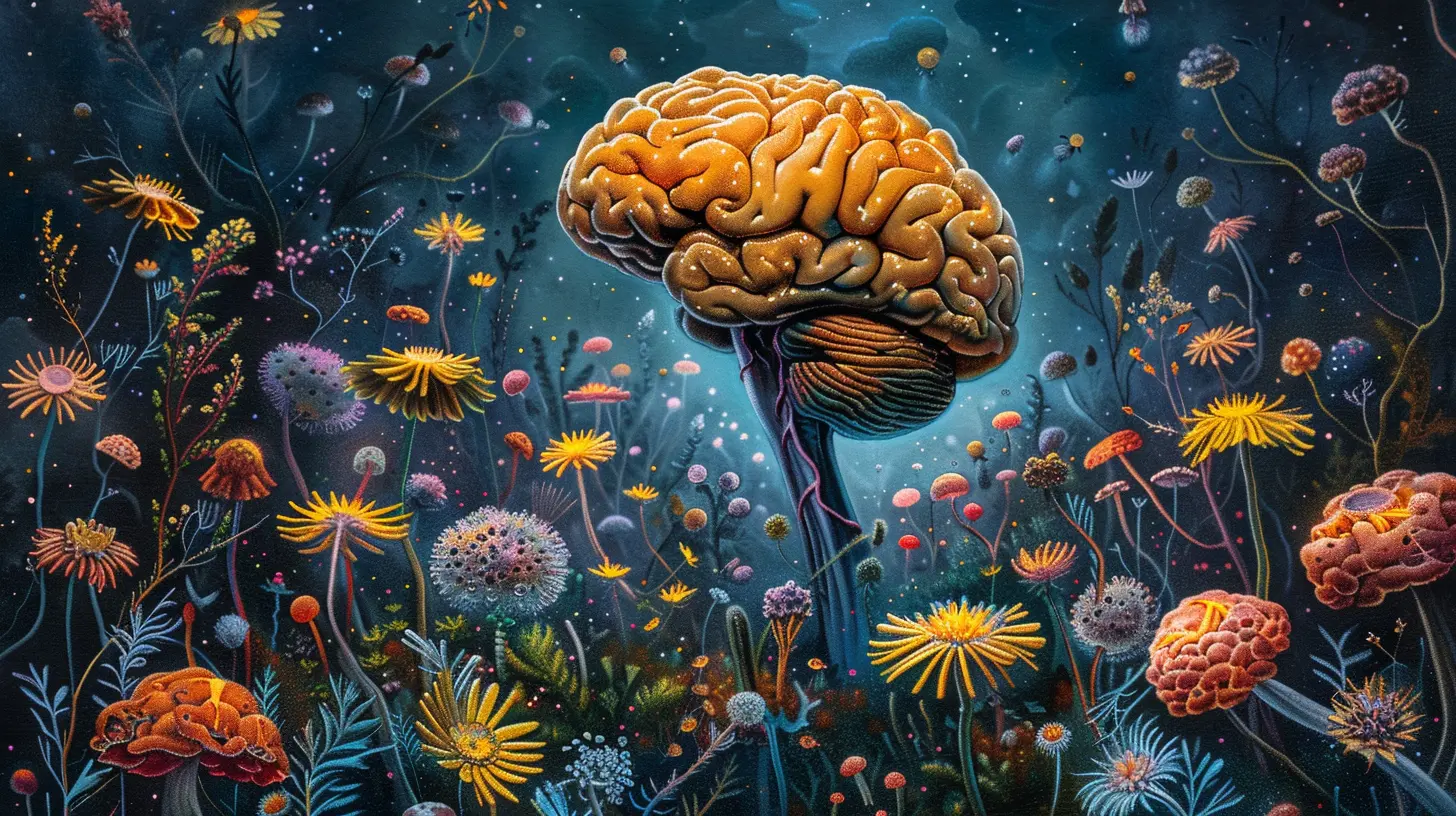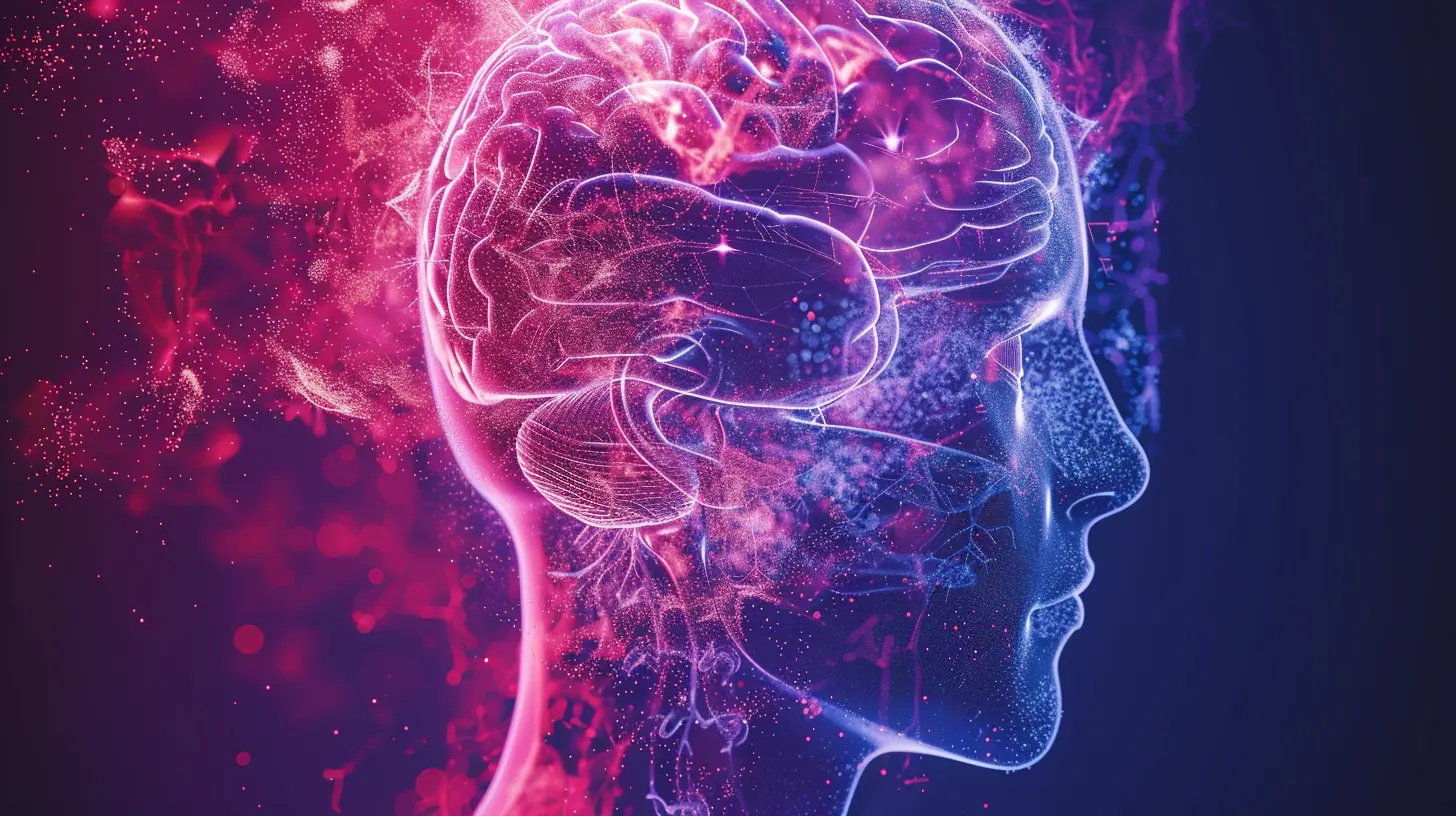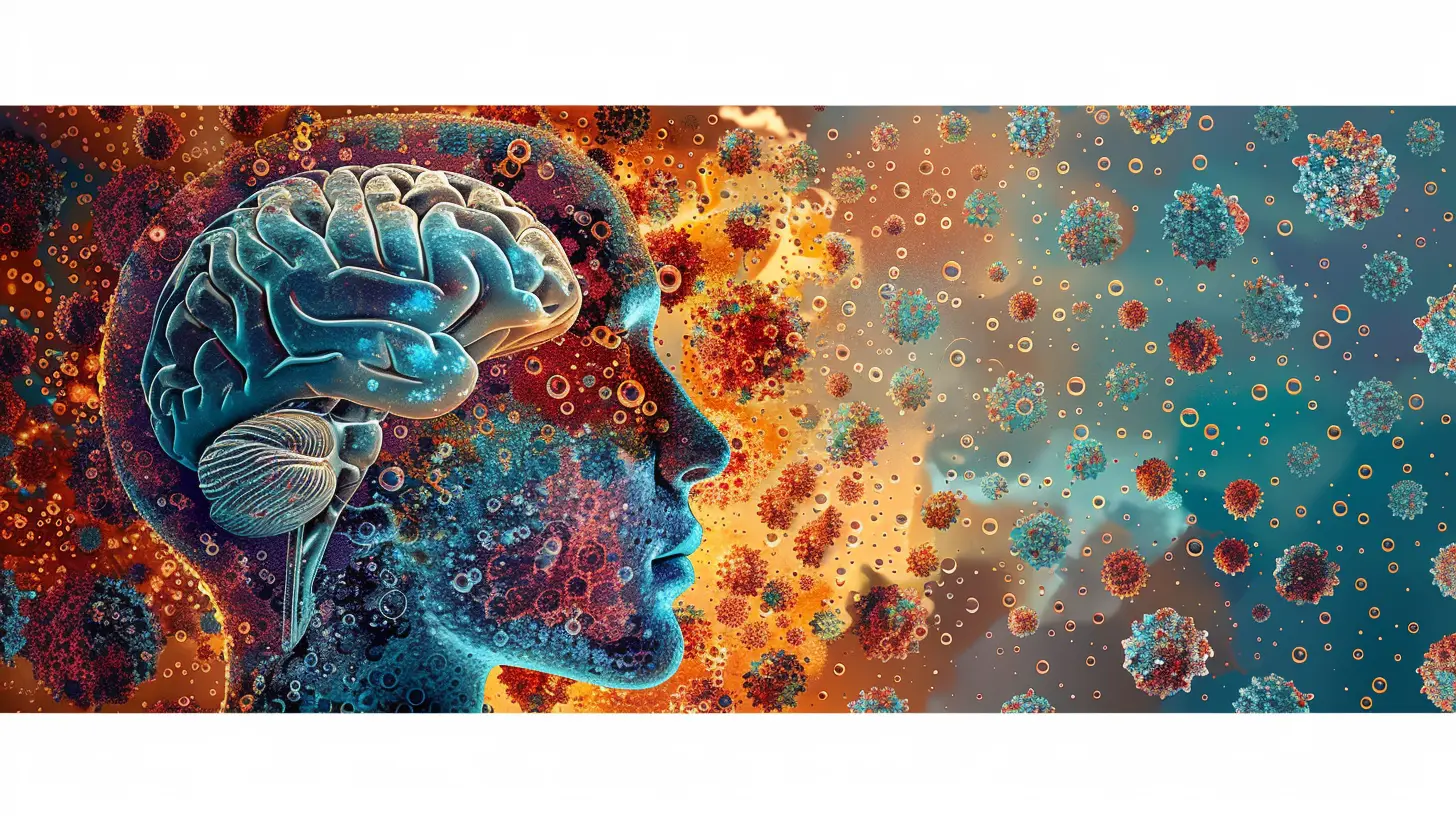Exploring the Gut-Brain Axis in Functional Medicine
11 November 2025
Ever get that “butterflies in your stomach” feeling when you're nervous? Or find yourself running to the bathroom before a big presentation? That’s the gut-brain axis at work — a mind-body connection that’s way more powerful than we used to think.
In functional medicine, the gut-brain axis has become a hot topic, and for good reason. This two-way communication between your gut and brain plays a starring role in everything from how you digest food to how you manage stress, anxiety, and even depression. It’s all connected — and functional medicine is starting to treat it that way.
So grab your tea, get comfy, and let’s dive into this fascinating connection and how it might just change the way we look at health forever.
What is the Gut-Brain Axis?
Alright, so what exactly is the gut-brain axis?In simple terms, the gut-brain axis is the ongoing conversation between your gut and your brain. But it’s not just a friendly chat — it’s an intricate, chemical, and physical connection that affects your mood, digestion, immune system, and even your cognitive function.
This superhighway is made up of:
- The central nervous system (CNS) — your brain and spinal cord.
- The enteric nervous system (ENS) — often called the “second brain” located in your gut.
- The vagus nerve — a long nerve that runs from your brainstem to your gut.
- Neurotransmitters, hormones, and inflammatory markers that send signals back and forth.
Yep, your gut literally talks to your brain — and your brain talks right back.
How Functional Medicine Views the Gut-Brain Axis
Traditional medicine often treats symptoms in isolation. Got migraines? Take this pill. Feeling anxious? Try that one. But functional medicine steps back and asks: “Why is this happening in the first place?”When it comes to the gut-brain axis, functional medicine practitioners look at the root causes. They evaluate how imbalances in the gut might be contributing to mental health issues, inflammation, fatigue, and chronic diseases.
Instead of just addressing the symptoms, they want to get under the hood — peel back the layers and treat the system, not just the symptom.
The Role of the Microbiome
Let’s talk bugs — and not the creepy-crawly kind.Your gut is home to trillions of bacteria, viruses, fungi, and other microorganisms. Together, they form your gut microbiome, and for the most part, they’re your buddies. They help digest your food, make vitamins, and keep your immune system humming.
But here’s the kicker: they also make neurotransmitters like serotonin, dopamine, and GABA — all of which affect your mood, sleep, and stress levels. In fact, about 90% of your serotonin (the “feel-good” neurotransmitter) is made in your gut.
So when your gut microbiome is out of whack — say from poor diet, antibiotics, or chronic stress — your mental health often takes a hit too. It’s like a party gone wrong: the DJ bails, the music stops, and chaos breaks loose.
Signs Your Gut and Brain May Be Out of Sync
You don’t need a lab coat to spot the signs of a gut-brain imbalance. You just need to know what to look for. Here are some red flags:- Frequent bloating, gas, or irregular bowel movements
- Brain fog or poor concentration
- Chronic fatigue
- Anxiety or depression
- Food intolerances
- Autoimmune conditions
- Poor sleep
What’s wild is that sometimes your mental health symptoms might actually start in your gut. So if you've been struggling with mood swings or anxiety and haven’t found answers, maybe it's time to look below the belt — literally.
Stress: The Big Disrupter
Think back to the last time you were super stressed. Did you feel a knot in your stomach? Lose your appetite? Your gut reacts to stress just like your brain does — because they’re in constant communication.Chronic stress can:
- Increase gut permeability (aka “leaky gut”)
- Wreck your microbiome balance
- Slow down digestion
- Raise inflammation levels
It’s like trying to have a calm conversation with someone yelling in your ear — the signals between the brain and gut get all jumbled, and miscommunication reigns.
Functional medicine tackles stress by looking at lifestyle, nutrition, and mind-body practices like meditation, breathwork, and good ol’ fashioned movement (walking, dancing, yoga — whatever gets you groovin’).
The Food-Mood Connection
Ever feel cranky when you're hungry? Or groggy after a carb-heavy meal? That’s the food-mood connection in action.A functional medicine approach to the gut-brain axis always includes nutrition — because, let’s face it, what you eat literally becomes you. The foods you put into your body can either heal or harm your gut, which, in turn, affects your brain.
Some gut-loving, brain-boosting foods include:
- Fermented foods (like sauerkraut, kimchi, and kefir)
- Prebiotic foods (like onions, garlic, and asparagus)
- Omega-3 rich foods (like salmon and walnuts)
- Polyphenols (found in berries, green tea, and dark chocolate)
- Fiber (think veggies, legumes, and whole grains)
On the flip side, a diet high in processed foods, sugar, and artificial additives can feed the “bad” bacteria in your gut, causing inflammation that messes with your head and body alike.
Healing the Gut to Soothe the Mind
Functional medicine practitioners often use a strategy called the 5R protocol to balance the gut-brain axis. Let’s break it down:1. Remove
First, you ditch the bad stuff — inflammatory foods, environmental toxins, and gut disruptors like alcohol and NSAIDs.2. Replace
Next, you bring in the good stuff — digestive enzymes, stomach acid support, and nutrient-dense foods.3. Reinoculate
This step brings in the good bugs through probiotics and prebiotics to restore a healthy microbiome.4. Repair
Support gut lining with nutrients like L-glutamine, zinc, and omega-3s to heal any damage.5. Rebalance
Finally, the focus shifts to lifestyle — stress management, sleep quality, and emotional well-being.It’s a holistic approach that views the person as a whole, not just a collection of symptoms.
Real-Life Impacts: From Brain Fog to Breakthroughs
Let’s be real: this isn’t just theory. Tons of people have found life-changing relief by focusing on the gut-brain axis.Maybe it’s the mom who struggled with postpartum anxiety until she healed her gut. Or the college student who thought he had ADHD — but it turned out his “focus issues” were rooted in gut inflammation. Or even the executive whose chronic migraines disappeared after rebalancing her microbiome.
These aren’t miracles. They’re the results of treating the system, not just the symptom.
How to Support Your Gut-Brain Axis Every Day
The good news? You don’t need a PhD or a pantry full of supplements to support your gut-brain connection on a daily basis. Here are a few simple ways to start:- Eat whole, colorful foods — think rainbow on a plate
- Incorporate fermented foods a few times a week
- Ditch processed junk and sugar (at least most of the time)
- Drink plenty of water
- Move your body every day (even a walk counts!)
- Sleep like it’s your job
- Chill out — seriously, find ways to decompress that work for you
- Laugh more, love often, and stay connected to the people who lift you up
Health isn’t about perfection — it’s about progress. And when you start tuning into your gut-brain connection, things can shift in some pretty amazing ways.
Final Thoughts: The Gut-Brain Axis is the Future of Medicine
The gut-brain axis represents a powerful intersection between mental and physical health. And functional medicine is at the forefront of tapping into that power — not with a Band-Aid, but with a roadmap that actually addresses the root causes.So the next time you're feeling off, anxious, foggy, or just not quite you, consider asking: “How’s my gut doing?” Your answer might be the breakthrough you’ve been waiting for.
And remember, healing is a journey — but the gut-brain road might just be the one worth traveling.
all images in this post were generated using AI tools
Category:
Functional MedicineAuthor:

Jackson Mahoney
Discussion
rate this article
1 comments
Mariana Huffman
This article effectively highlights the vital connection between gut health and mental well-being, showcasing the importance of a holistic approach in functional medicine.
November 27, 2025 at 5:51 AM

Jackson Mahoney
Thank you for your thoughtful comment! I'm glad you found the connection between gut health and mental well-being compelling. It's a crucial aspect of functional medicine.


